Topics:
Never Miss a Beat - Get Updates Direct to Your Inbox
FILTER:
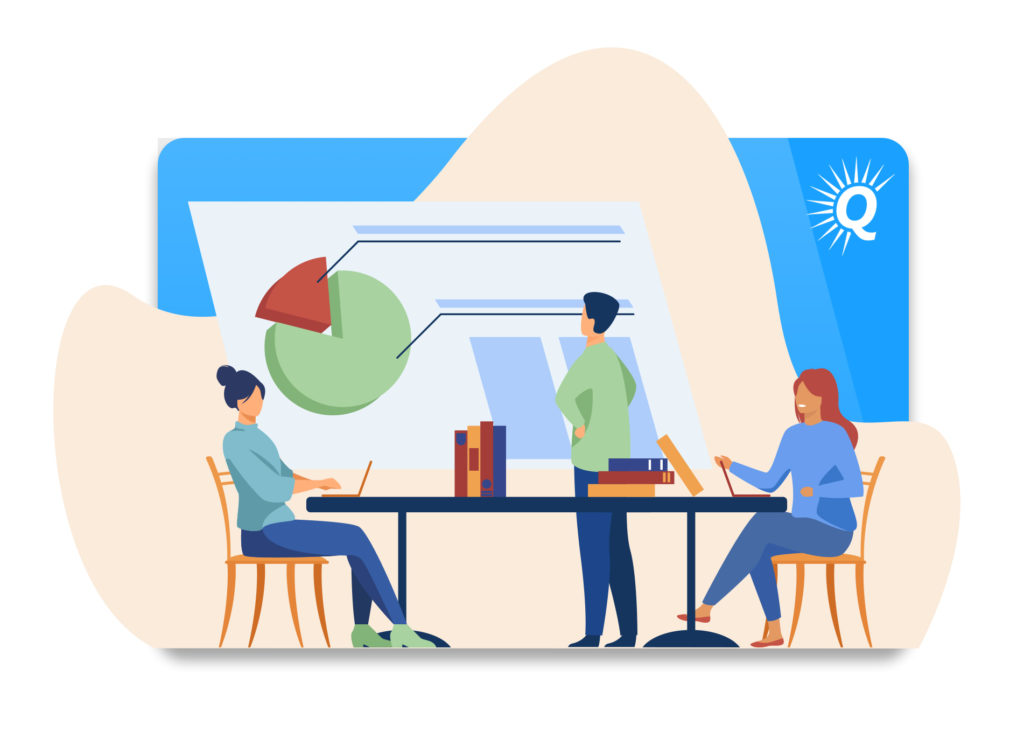

5 Reasons You Should Work With An Advisor When Selling Your Amazon FBA Business
By Ian Drogin
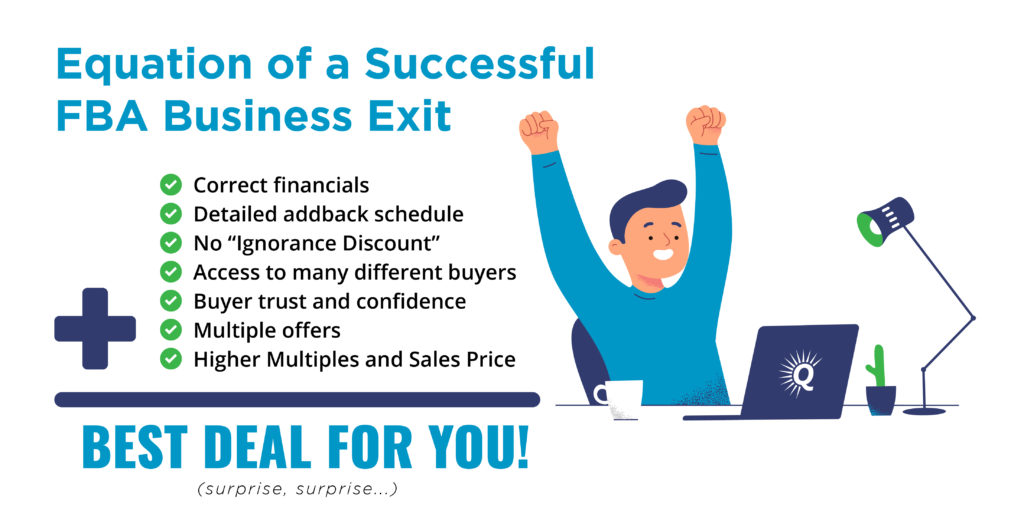

The landscape for selling Amazon businesses has changed dramatically in recent years.
There have never been more possibilities, which means it’s important for sellers to evaluate their goals and carefully choose which path is best for them.
For most people interested in selling an online business, using an advisor is clearly the best option for exiting on terms that meet their goals.
This article will discuss five key reasons why you should work with a business advisor when selling your Amazon FBA business.
Before diving, let’s briefly define the general routes you could take when selling…
Related Articles:
Before You Hire a Business Broker, Ask These Three Questions
How to Choose the Right M&A Advisor
Selling Through An Advisor Vs. Selling Direct
All paths for selling your business fall under 2 main categories: selling through an advisor and selling directly to the buyer without a third party helping to facilitate the transaction.
Working With An Advisor
When you work with an experienced advisor to sell your FBA business, they’ll walk you through all the necessary steps to successfully complete the transaction. Some of the benefits they provide will include:
- Ensuring that your financials are organized and error-free Presenting your business in the most appealing manner possible
- Providing access to thousands of potential, qualified buyers
- Helping with the negotiation process
- Evaluating offers and answering any questions that arise


Selling Direct
As the term implies, selling direct means selling your business directly to a buyer without consulting with a third-party advisor.
Numerous firms are seeking to acquire established Amazon businesses. These companies are often referred to as private equity firms, FBA brand operators, roll-up buyers, or aggregators.
Currently, we’re seeing a lot of aggregators seeking to buy FBA businesses directly from individual sellers. While they claim to save sellers money by cutting out brokers, looking closely, it’s clear that such transactions typically result in sellers significantly undervaluing their business.
The following sections will detail why that’s the case…
Avoid SDE Mistakes
Everyone loves to talk about the multiple. It’s this nice, clear number that everyone can relate to. Telling your mastermind, “I got a 3.8 multiple” or “I got 5X on my business” is an easy way to say, “I had a really successful exit!”


The multiple is certainly important, but there’s another question that is even more critical…
Multiple of What?
Owners can get so wrapped up in the “multiple” that they forget to pay close attention to the number that the multiple is applied to – Seller’s Discretionary Earnings (SDE).
Calculating an accurate SDE is usually a bit more complicated than understanding the multiple.
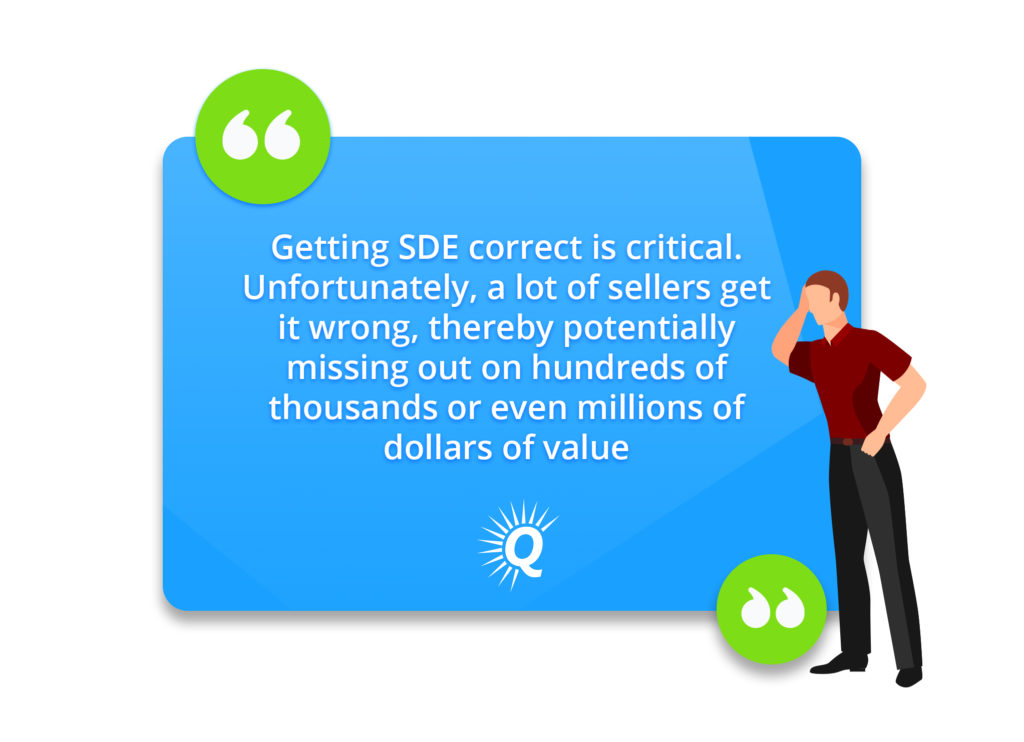

Getting SDE correct is critical. Unfortunately, a lot of sellers get it wrong, potentially missing out on hundreds of thousands or even millions of dollars of value.
When selling their business alone, there are several reasons why even the smartest entrepreneurs get the wrong number for SDE.
The following is by no means an exhaustive list of the possible mistakes that sellers make, rather, it’s a brief summary of the more common errors we see. Only a personalized valuation can reveal how this framework applies to your business.
Get a free, individually-tailored valuation and business-readiness assessment. Sell when you're ready. Not a minute before.Thinking of Selling Your Business?
Most Common SDE Mistakes
There are a few common mistakes that owners make when calculating SDE that can significantly reduce the purchase price. Two of the more critical ones include:
- Omitting important items on the addback schedule
- Not using the correct date range
Some owners believe that because they understand their cash flow and financial statements, they’ll have no problem establishing their SDE and valuing their business. Unfortunately, this is incorrect.
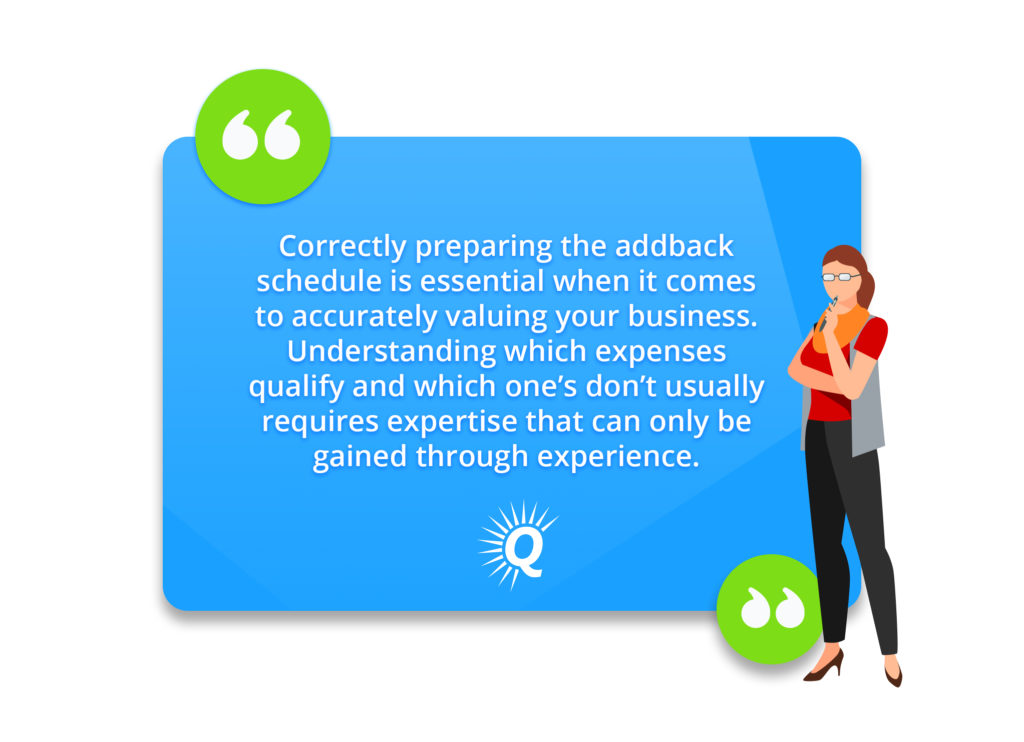

Correctly preparing the addback schedule is essential when it comes to accurately valuing your business. Understanding which expenses qualify and which ones don’t usually require expertise that can only be gained through experience.
We’ve seen many cases in which sellers have failed to include important expenses on the addback schedule. Of course, this causes SDE to be underreported, which, in turn, leads to their business being undervalued.
Avoiding Mistakes In Your Addback Schedule
If you include an expense on your addback schedule that really shouldn’t be there, is a smart buyer going to let it slip?
Of course not.
What if you fail to include an expense that should be on your addback schedule – what then?
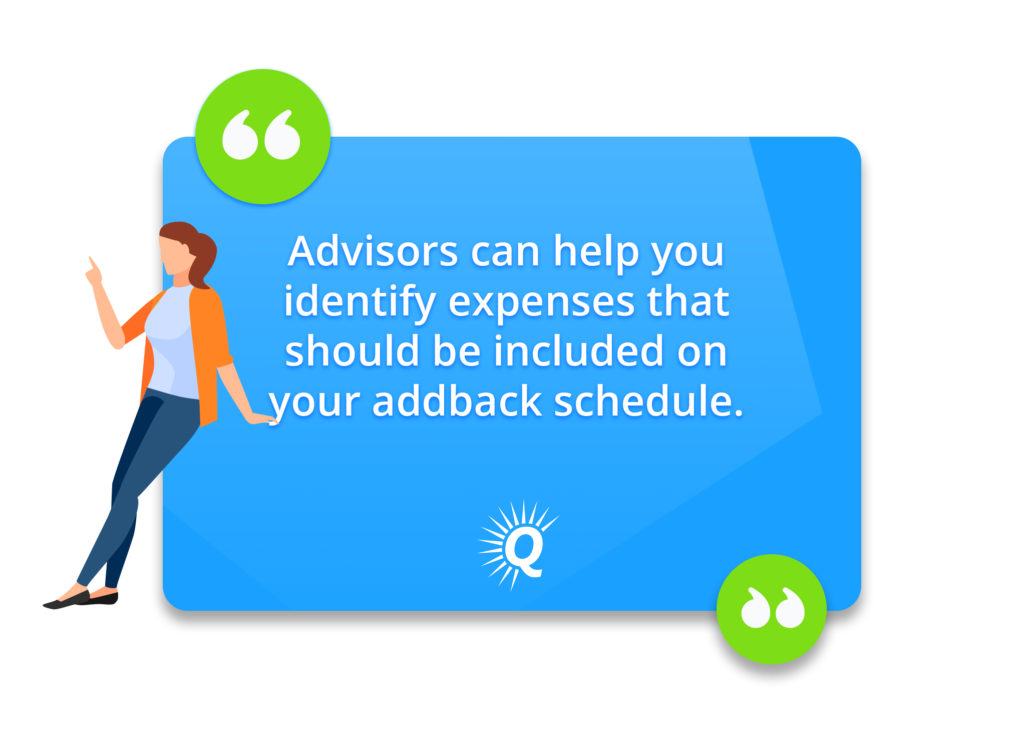

Without an advisor helping you, the mistake will almost definitely slide by. Almost no buyer is going to let you know about a mistake that is in their favor.
Advisors can help you identify expenses that should be included in your addback schedule.
For example, we’ve seen sellers who experienced a significant decrease in their Cost of Good Sold (COGS) just a few months before listing their business for sale.
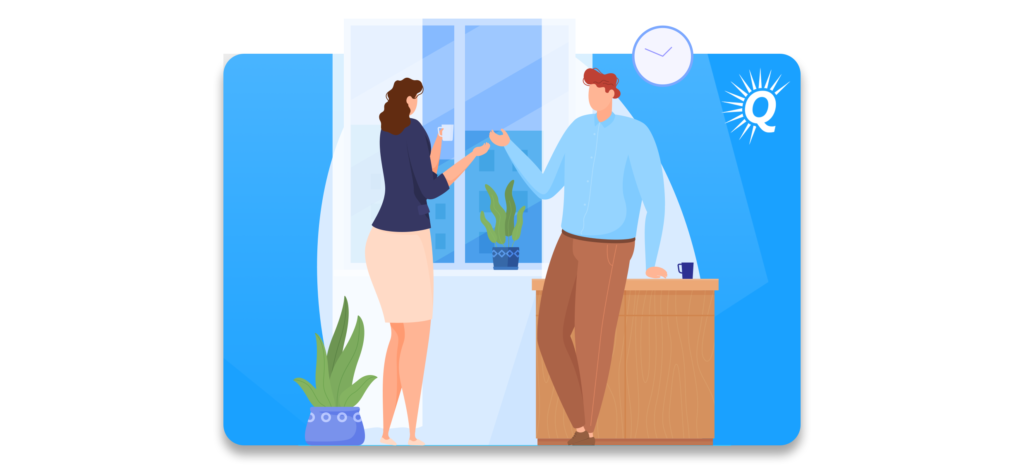

When this happens, SDE should be adjusted for the trailing twelve months to reflect the higher margin the business is experiencing. However, sellers generally don’t know this, so they fail to include an addback to compensate for the more favorable COGS expense.
Because there are so many possible reasons for expenses to be included as addbacks, there are numerous other examples in which sellers have inadvertently shortchanged themselves by failing to prepare an accurate addback schedule. Working with an advisor is a dependable way to safeguard against an inaccurate addback schedule.
Make Sure Your Financials Are Based On The Correct Date Range
For businesses that have a high growth rate, it’s common that the value is determined by the wrong date range.
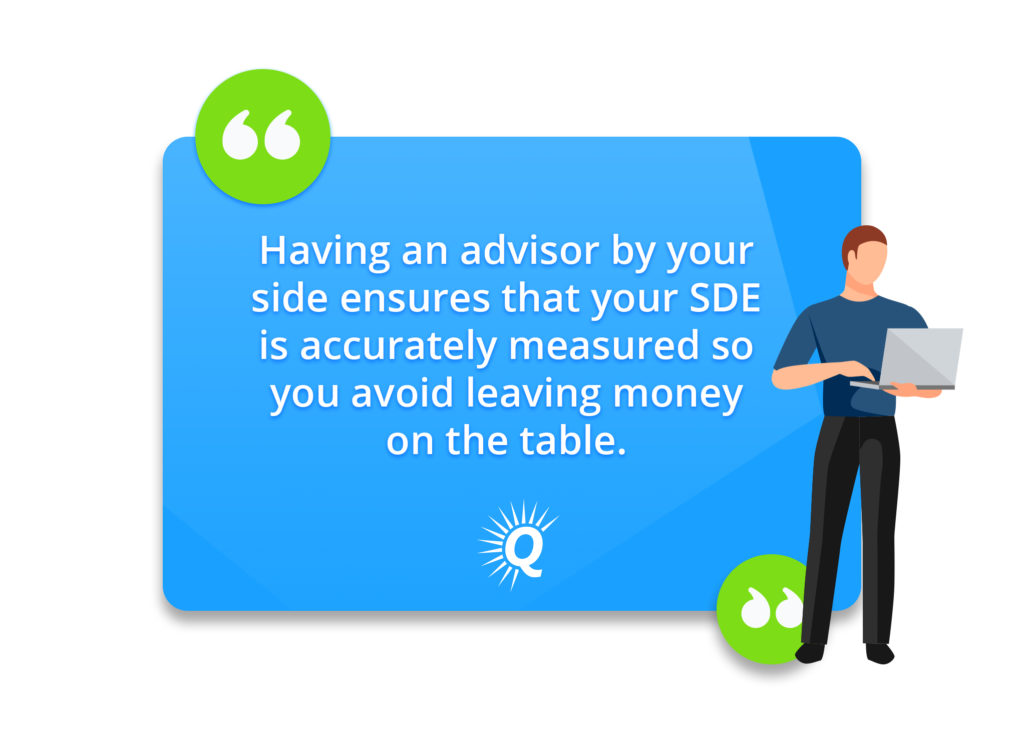

For example, if your business is growing at 100% YoY and is valued in January but the sale isn’t completed until May, your monthly SDE will be approximately 40% higher at the time of sale than it was when your business was valued. Therefore, it’s important to perform an updated valuation before closing the deal.
Again, this is something that most sellers overlook. If you work with an advisor, such pitfalls are identified and avoided.
In short, numerous variables impact SDE at any given time. Having an advisor by your side ensures that your SDE is accurately measured so you avoid leaving money on the table.
Outsmart the startup game and check out our listings. You can request a summary on any business without any further obligation.Buy a Profitable Online Business
Receive More Offers
There are two primary reasons that FBA businesses receive more offers when listed with an established advisor:
- You gain immediate access to thousands of qualified buyers
- Buyers know that your business has been “pre-vetted”
Advisors Have Large Networks Of Qualified Buyers
Established advisors have lists of thousands of potential buyers. When your FBA business hits the market, investors everywhere will be notified.


At Quiet Light, our buyer pool has over $1.5B of capital ready to deploy for acquiring businesses such as yours. Our buyers are also highly educated and competent at running businesses, making them great candidates.
Most sellers simply don’t have access to a wide pool of buyers on their own. Even if you get one or two offers from different aggregators, it’s still difficult to tell how much your business could receive if thousands of qualified buyers had the opportunity to make offers.
More exposure means more offers.
Advisors Instill Trust Among Buyers
Additionally, when you sell through an advisor, buyers know that your business has been scrutinized by entrepreneurs who know what they’re doing.
When you work with a qualified advisor, you’re basically able to borrow their credibility. This leads to greater interest and trust among buyers.
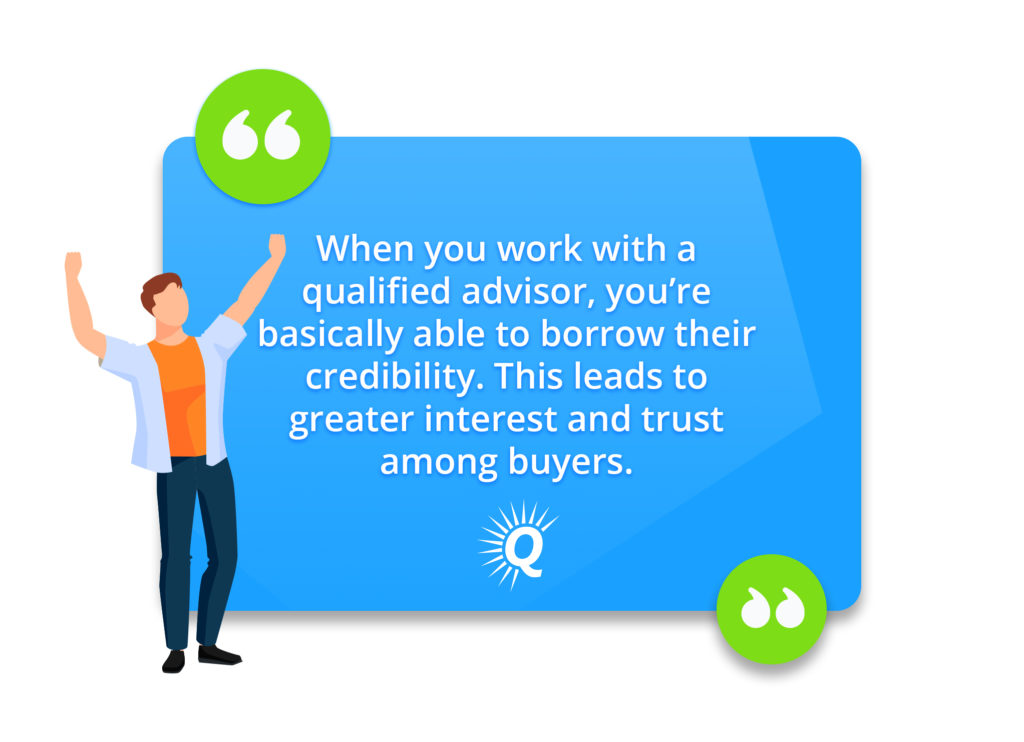

When you sell direct, there will generally be less interest among a wide pool of potential buyers. The reason is simple: A lot of buyers rely on brokers to instill trust in a given deal, at least to a certain extent. They know that a reputable advisor wouldn’t list a business unless it’s a legitimate and valuable asset for investors to acquire.
Of course, large private equity firms will buy directly from you. In fact, that’s their preference since it avoids competition from other buyers. However, as a seller, you want competition among buyers. Competition among buyers keeps everyone honest, so it is absolutely in your best interest to get as many offers as possible on your FBA business. Advisors help make that happen.
Many of our FBA deals receive between 6 and 13 offers. Needless to say, when buyers know that other investors are making offers, they’re motivated to increase their offer in hopes of winning. That’s good news for you as a seller.
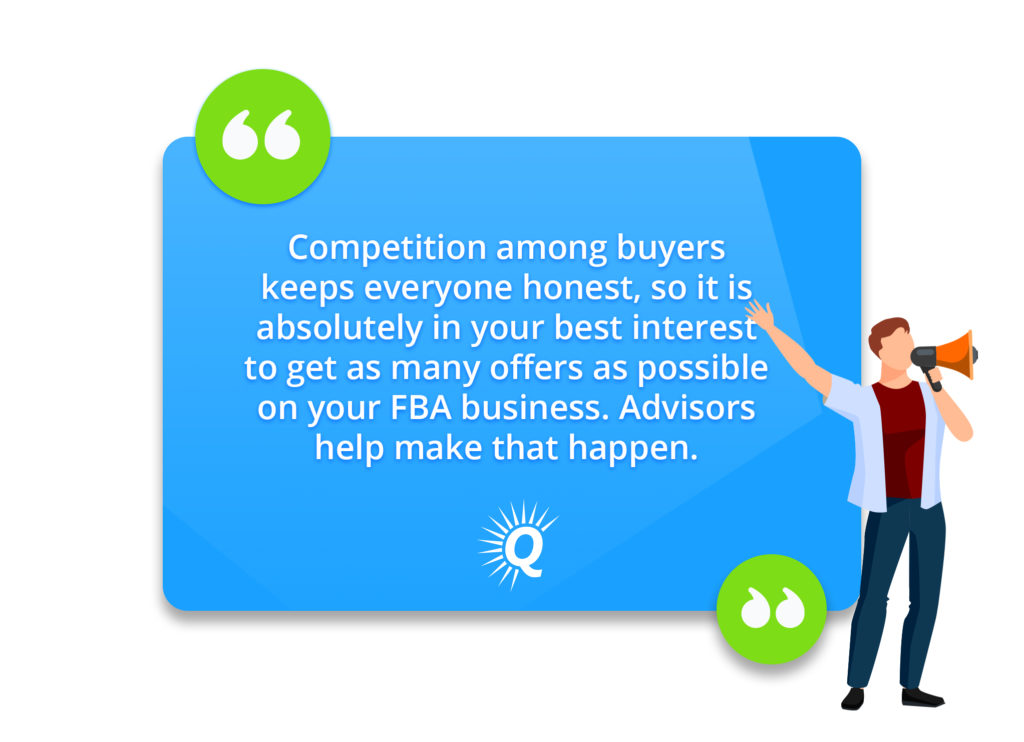

The Bottom Line: Walk Away With More Money
For most sellers, it all comes down to one fundamental question: “What route will allow me to walk away with the most money?”
Working with an advisor will almost always allow you to walk away with more cash in your pocket.
Accurate financials, greater exposure, and increased credibility leads to higher offers on your business.
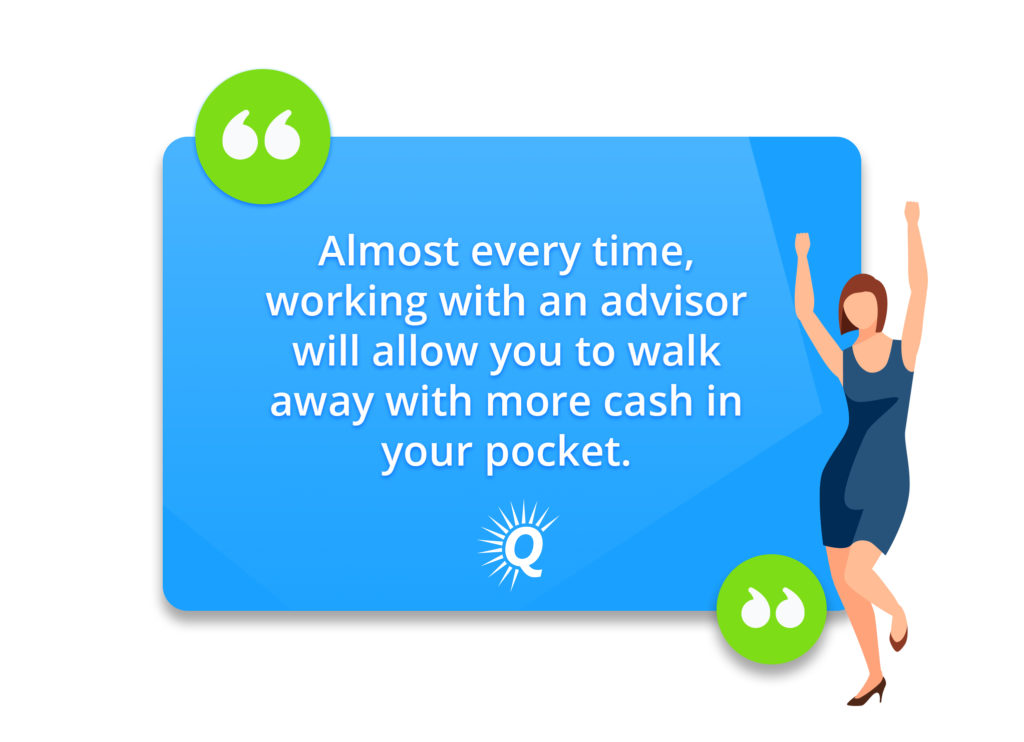

At the end of the day, it comes down to market competition. More interested buyers mean more offers for you. The more offers you receive, the more likely that they will be good offers.
Aggregators Rely On The “Ignorance Discount”
When an aggregator approaches you directly and makes an offer on your business, they’re hoping that you won’t pay attention to other possible exit opportunities.
How can you possibly know you’re getting a good deal if other buyers haven’t had a chance to make an offer on your business? Simply put, you can’t!
Making a selling decision based on one offer is a quick way to fall victim to the “ignorance discount.”
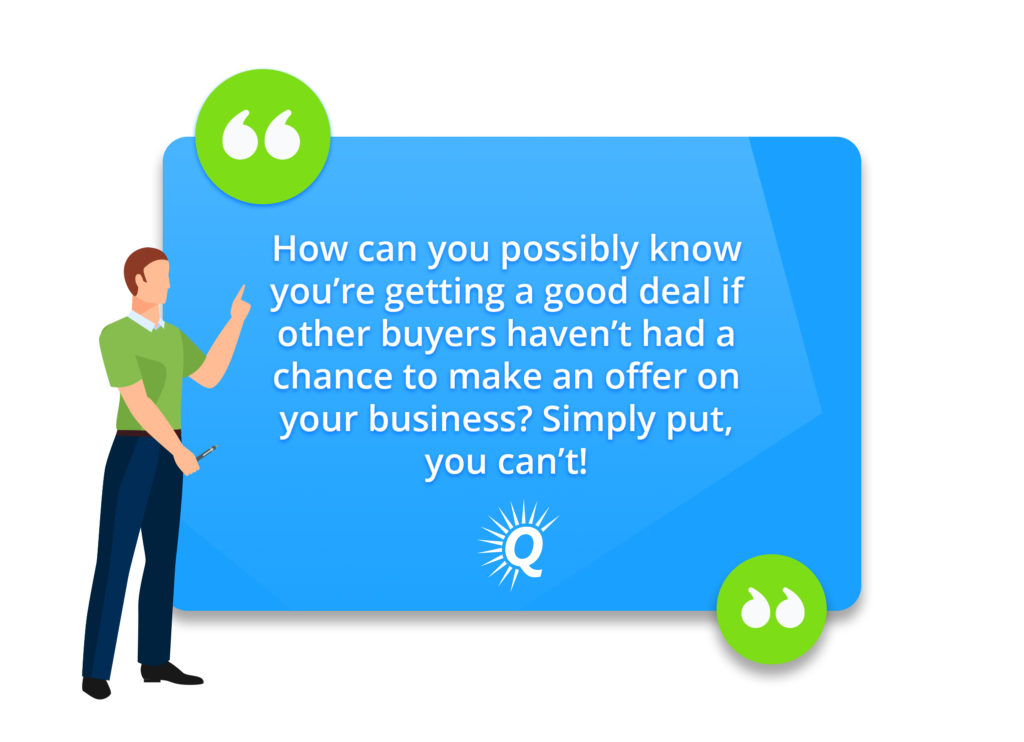

More than likely, if you get an offer from one potential buyer, it will not be a very good offer. If you get an offer from 6 potential buyers, there will probably be some competitive bids since they’re all competing with one another.
Why Giving Up 4-10% Can Help You Get 20-30% More At Closing
Private equity firms will claim to save sellers 10% by allowing them to avoid advisor fees. However, what they really want is to avoid competition among other buyers who might offer you a better deal.
When you work with an advisor, yes, you will pay an advisor fee that is roughly 4-10%, depending on the size of your business. But there’s a very good chance that the advisor will allow you to sell for 20-30% more than you would on your own.
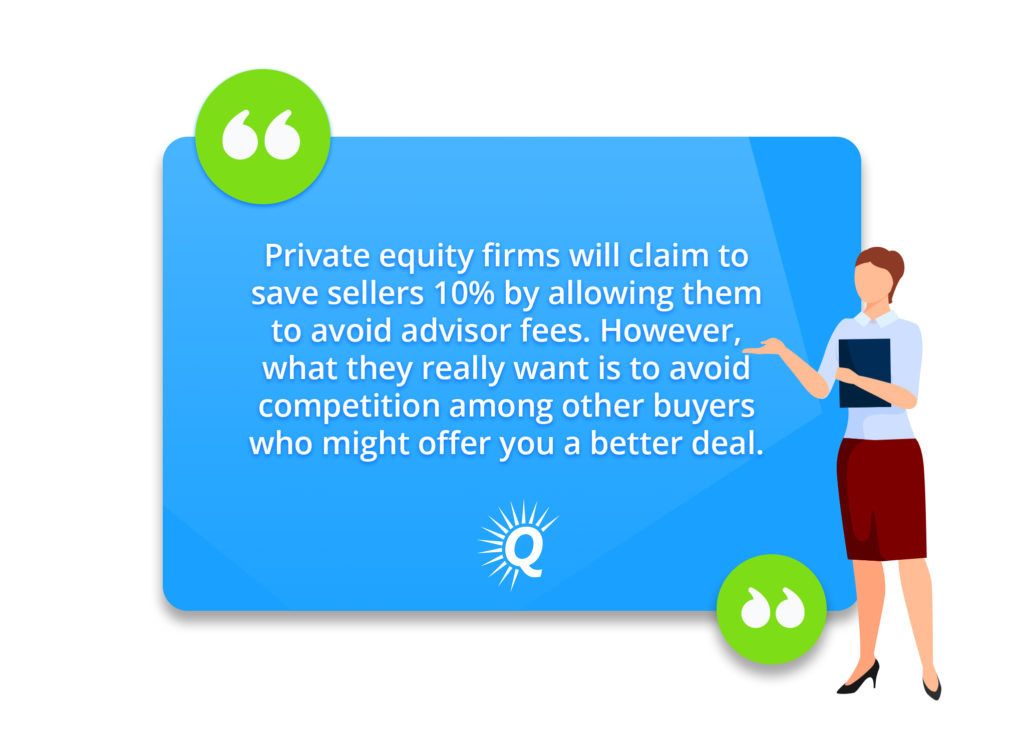

You’ve spent years building your business; do you really want to deprive yourself of money you’ve earned by failing to get the best possible deal when selling?
Get Better Deal Terms
Just as you’re likely to get a lower monetary offer when working with a single buyer, you’re also likely going to receive worse terms.


Offers from private equity firms are often heavily weighted towards earn-outs. This allows them to make transactions look reasonable on the surface without actually paying you the full purchase price at closing.
If you’re ready to move on to your next venture, having a lingering earn-out may prevent you from focussing your energy on your project. There’s something very rewarding about making a clean break from the business you just sold.
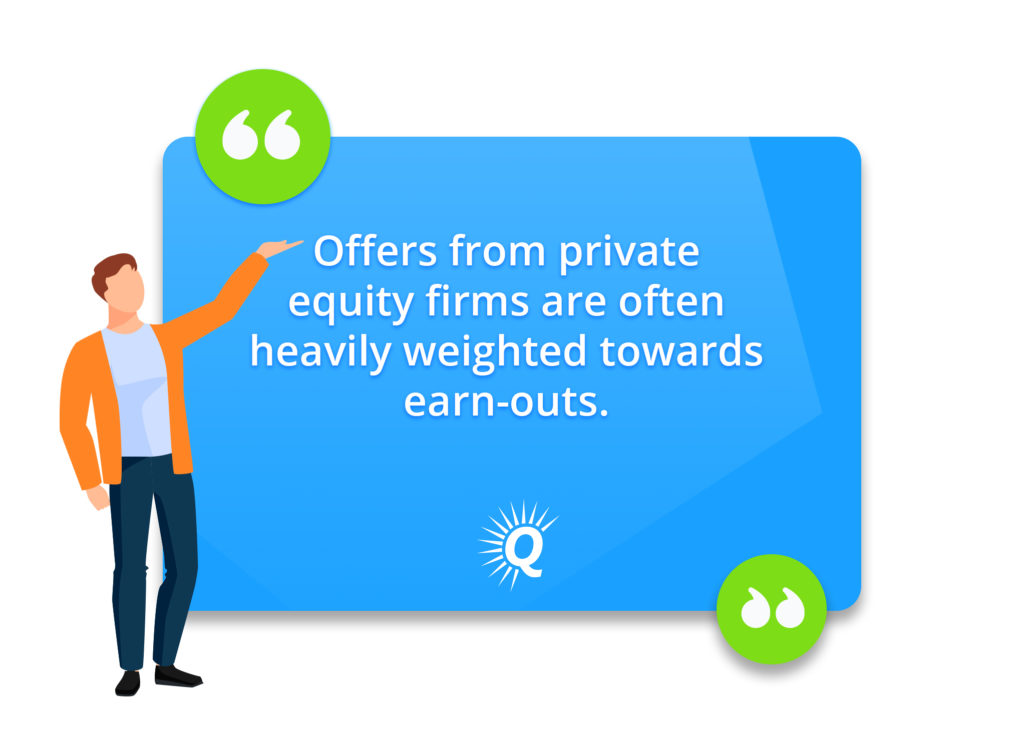

Even if selling your business with an earn-out isn’t the end of the world, wouldn’t you be curious to find out if another seller would give you the full purchase price at closing? When your business is shown to many buyers, there’s a much better chance that will happen.
Make Aggregators Pay You What You’re Worth
If an aggregator approaches you to buy your business, it may seem like you only have two options: sell to them, or work with an advisor to sell to someone else…
In reality, the two options are not mutually exclusive of one another. If you work with a business broker, you can still sell to the aggregator who approached you. The difference is that with an advisor, all the other buyers out there will also be able to make an offer on your business, which will put pressure on everyone to make better offers.
Make Aggregators Bid Against Each Other
The chances are, if one aggregator approached you to buy your business, there’s a lot more who will be interested, given the opportunity…
Right now, private equity firms are on the hunt for successful FBA brands. If you’re a small business owner selling on Amazon and you receive an inquiry from a private equity firm seeking to acquire your business, there’s a good chance you have something of immense value.
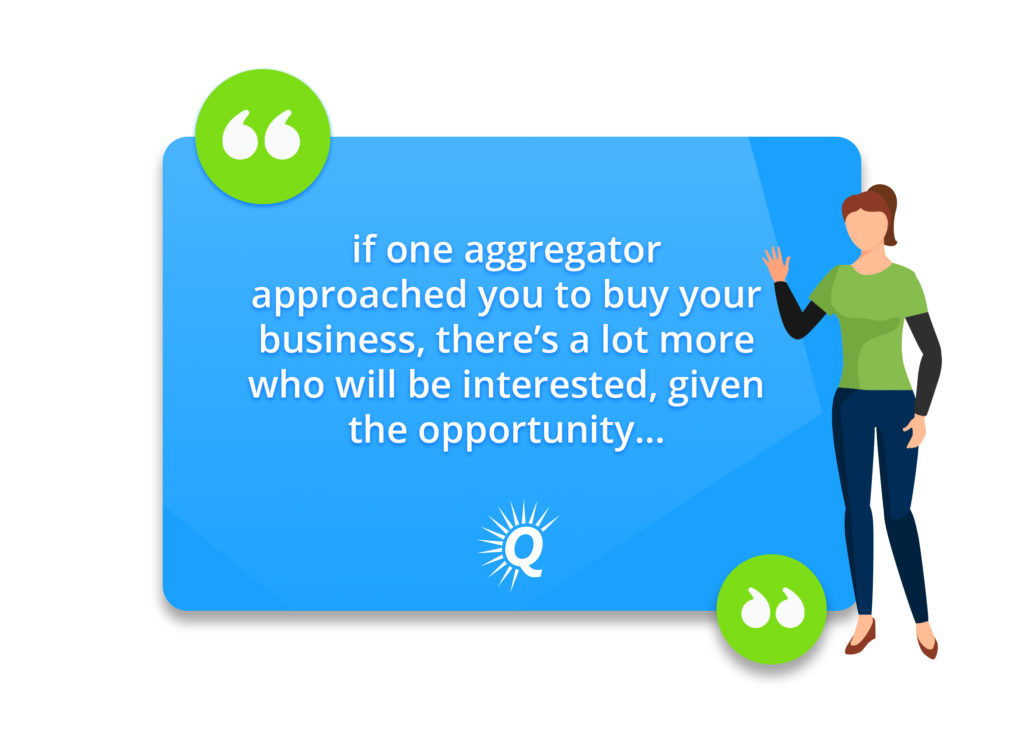

When an advisor helps you list your business for sale on the marketplace, you’re in a prime position to be seen by thousands of potential buyers.
If you’ve sold a home, you know that creating an attractive listing to multiple buyers leads to higher offers. An advisor can help make that happen for your FBA business.
When you get a few different buyers interested in your business, you know that the pressure is on to make good offers!
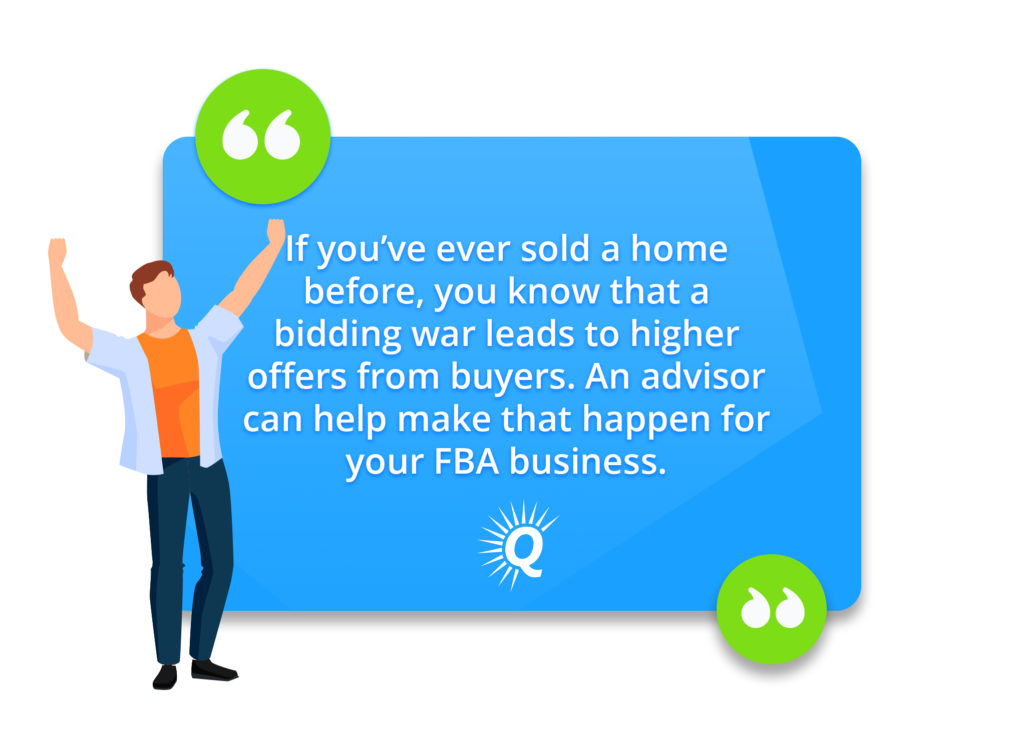

For a desirable Amazon business, it’s not uncommon for our sellers to receive 5-10 serious offers. More and more, we’re seeing aggregators in the mix trying to acquire our seller’s FBA brands.
Selling to a private equity firm can be a great choice. Just make sure that you’re getting the best deal possible by knowing all the options that exist in the marketplace.





